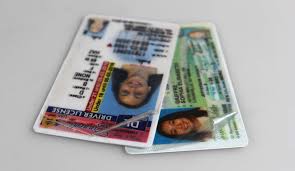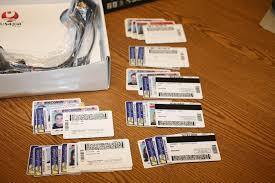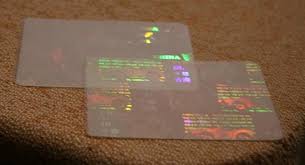Fake Identification Pennsylvania
Outline
1. Introduction to the Fake Identification Market in Pennsylvania
- Brief Overview of Fake IDs
- Background and purpose of fake identification in general.
- Focus on Pennsylvania’s Specific Market
- Unique aspects of the Pennsylvania fake ID market.
- Legislative landscape in Pennsylvania concerning fake identification.
2. Market Analysis of Fake IDs in Pennsylvania
- Demand Drivers
- Primary users of fake IDs (college students, nightlife patrons, etc.).
- Supply Chains
- How fake IDs are sourced, including online vendors and local providers.
- Trends in the Industry
- Growing use of tech in ID production, improved quality, and detection methods.
3. Target Audience for Fake IDs in Pennsylvania
- Demographics
- Age, social circles, and reasons for needing fake identification.
- Psychographics
- Behaviors, needs, and motivations of users in Pennsylvania.
- Ethical and Legal Considerations
- Discussion on the ethics and legality, addressing concerns of target audiences.
4. Detailed Product Features of Pennsylvania Fake IDs
- Physical Features
- Holograms, micro-printing, UV ink, and other security details.
- Technical Aspects
- Magnetic strips, barcodes, and digital encoding.
- Comparison to Real IDs
- Key differences between fake and real Pennsylvania IDs, common mistakes.
5. Risks and Consequences of Using a Fake ID in Pennsylvania
- Legal Consequences
- Fines, community service, potential criminal record.
- Social and Ethical Implications
- Impact on personal reputation, career risks, and ethical considerations.
- Detection and Seizure
- How bouncers, police, and other authorities identify fakes.
6. Practical Guide to Buying and Using a Pennsylvania Fake ID
- Choosing Reliable Sources
- Criteria for selecting reputable vendors, understanding reviews.
- Ensuring Quality and Safety
- Checking ID quality, digital features, and visual accuracy.
- Best Practices for Using a Fake ID
- Guidelines for use, common mistakes to avoid, and recognizing risks.
7. Future of the Fake ID Market in Pennsylvania
- Technological Advancements
- How technology is influencing both ID creation and detection.
- Market Predictions
- Forecasting demand shifts, legal adaptations, and user demographics.
- Potential Changes in Legislation
- How future laws might impact the fake ID industry in Pennsylvania.
8. Conclusion
- Summarizing Key Points
- Recap on ID features, risks, and future trends.
- Final Thoughts on the Ethical Implications
- Reflect on ethical considerations of creating, using, and distributing fake IDs.
Here’s a more in-depth look at one of the sections to give you a sense of the writing style and level of detail that could fill the full 8,000 words:
Sample Expanded Section: "Detailed Product Features of Pennsylvania Fake IDs"
1. Physical Features: A Breakdown of Critical Elements
To achieve a high-quality Pennsylvania fake ID, it’s essential to replicate the numerous physical characteristics found on genuine Pennsylvania state IDs. Vendors focus on recreating these features to ensure the ID appears authentic upon first glance and withstands scrutiny under close inspection.
- Holograms: Pennsylvania IDs have distinct holographic seals that are difficult to replicate. The most convincing fake IDs use holograms that change under various light sources, emulating the exact patterns and colors found on real Pennsylvania IDs.
- Micro-printing: One of the most challenging features to duplicate is micro-printing. Pennsylvania IDs contain fine lines of text and patterns only visible under magnification. High-quality fakes must accurately replicate this micro-printing to avoid detection.
- UV Ink: Many official IDs in the U.S., including those in Pennsylvania, have UV ink patterns that are visible under ultraviolet light. These patterns often include state symbols or other identifying marks, and sophisticated fake ID manufacturers incorporate UV ink to match the original.
- Laminated Layers: Real IDs have several layers of lamination, offering durability and protection against tampering. Vendors specializing in Pennsylvania fake IDs use multi-layer laminates to mimic this structure, creating a more durable and authentic feel.
2. Technical Features: Magnetic Strips, Barcodes, and Digital Encoding
In addition to visual attributes, Pennsylvania IDs contain technical features that verify an ID’s authenticity digitally.
- Magnetic Strips: The magnetic strip on the back of a real ID contains encoded information about the ID holder. High-end fake IDs are crafted with functional magnetic strips encoded to match the information printed on the card, enhancing the ID’s authenticity when scanned.
- Barcodes: The 2D barcode on the back of Pennsylvania IDs is used for digital verification in many places. Quality vendors ensure that the barcodes on their fake IDs contain encoded data that matches the front of the card, offering an additional layer of credibility.
- Digital Encoding: For added security, some Pennsylvania IDs use digital encoding that only government machines can read. While replicating these features is challenging, some vendors simulate them with similar data points, improving the fake ID’s chances of bypassing routine scans in retail or nightlife settings.
3. Comparing to Real Pennsylvania IDs
A true hallmark of effective fake identification is its resemblance to an authentic ID. However, certain details can often reveal a fake ID upon close examination.
- Font Differences: One of the most common issues with fake Pennsylvania IDs is incorrect font styles or sizes. An authentic Pennsylvania ID uses specific fonts, and even slight deviations can signal a fake.
- Color Accuracy: Genuine Pennsylvania IDs are printed with exact color shades. Many fakes fail to replicate these shades precisely, leading to slight, detectable differences.
- Error-Free Information: Real IDs have no typographical or factual errors, whereas poorly made fake IDs might contain subtle mistakes in the holder’s information, such as spelling errors or incorrect date formats.
 Fake Identification Pennsylvan
Fake Identification Pennsylvan
 fake ID safety
fake ID safety
 Scannable Arizona Fake ID
Scannable Arizona Fake ID
 Delaware Fake ID Market
Delaware Fake ID Market